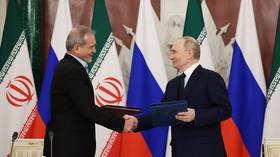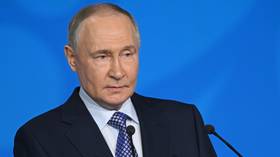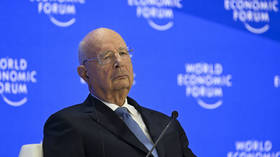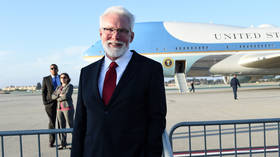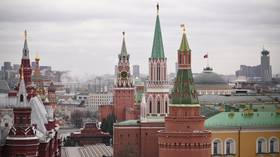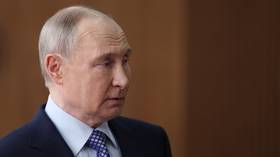Magnitsky Act the result of ‘know-nothing Congress and lack of leadership from White House’
US-Russian relations were further strained this week after Washington and Moscow published lists of persons banned from entering their countries. A US scholar has told RT the diplomatic fallout is the result of an “uninformed” Congress.
The 'Magnitsky Act' is a serious blow to US-Russia relations,
according to Stephen F. Cohen, a professor of Russian studies and
history at New York University. In an interview with RT, he
described the recent 'war of lists' as the start of a new Cold War,
and expects that relations between Washington and Moscow will
further deteriorate.
RT:This tit-for-tat blacklisting is reminiscent of the mutual expulsion of diplomats during the Cold War. To what extent is this going to affect relations between Moscow and Washington?
Stephen Cohen: It’s already affected relations. It’s
created a very bad political atmosphere in Washington. With the
Magnitsky Act, we now have institutionalized by an act of Congress
a kind of a prejudicial approach to Russia, that’s going to
continue. It won’t be possible to end the Magnitsky Act.
In Moscow, it’s made the Russian political class in which president Putin operates even more anti-American, even more resentful toward American policy. And the lists that have been published this week are only the beginning. Some people here say, 'Well, they are very moderate, not many names on them.' But we don’t know whose names are on the secret lists in both countries. Even though the tit-for-tat began in the United States with the Magnitsky bill, both sides are now going to use this law for their own political purposes.
There’ll be groups in the United States – very anti-Russian, anti-Putin groups – who will want many names on this list, will lobby Congress for that, even Putin’s name himself. And there are anti-American forces in the Russian political class that will match them person for person. So, for anyone who cares for American-Russian relations, thinks that a cooperative relationship is necessary for the American national security and Russian national security, this is a very bad development.
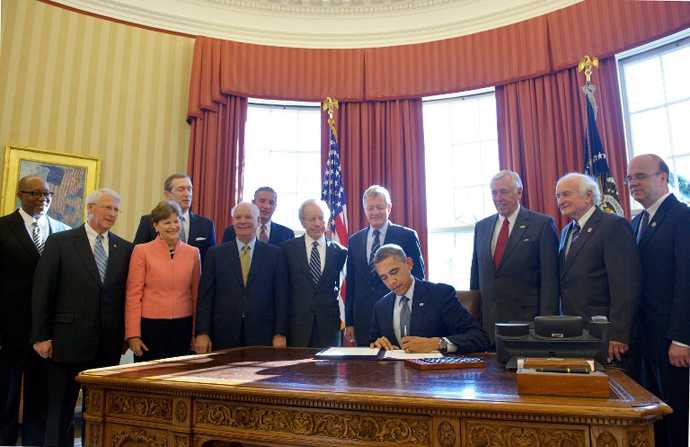
RT:The Magnitsky Act was inserted into the bill to repeal the Jackson-Vanik trade amendment. Why was it not enough for Congress to just normalize relations with Russia? Did it really have to add the Magnitsky List, which Moscow calls russophobic?
SC: I think that the Magnitsky Act and Moscow’s reaction,
which was predictable, are evidence that we are already in a new
Cold War, or are on the verge of it. The act by Congress was of
course provoked by russophobic forces in the United States.
Congress itself is not russophobic, it’s just uninformed. It knows
almost nothing about Russia. Most members of Congress have no
understanding of international affairs or national
security.
And when lobbyists bring pressure on the majority members of
Congress, and this was a bipartisan act. So-called Democrats,
progressive people supported the Magnitsky Act, as much as did the
reactionary Republicans, you end up with a bill like that. It’s not
about russophobia, it’s about lack of knowledge. It’s a bad thing
when legislators pass laws on subjects they know almost nothing
about. Now it’s true that the Obama White House did not want the
Magnitsky Act, but it did not use its power and its leadership to
stop it. And so that’s what you call a combination of a
know-nothing Congress and the lack of leadership from the White
House.
RT:Prime Minister Medvedev says that despite the latest spat, there is still room for cooperation with Washington. Does that mean this exchange is something of a sideshow, or is it really a stumbling block?
SC: It changed and poisoned the atmosphere. It’s going to make it harder, for example, for President Obama to make concessions on let’s say missile defense to President Putin. Because there’s this attitude that Russia does not deserve any concessions. And I’m guessing that if President Putin would like to modify his position on European missile defense – and I mention that because it’s on the table at the moment, it’s an important issue – that there will be forces in the Russian political class, that will oppose these compromises to the United States. So, it’s not a sideshow.
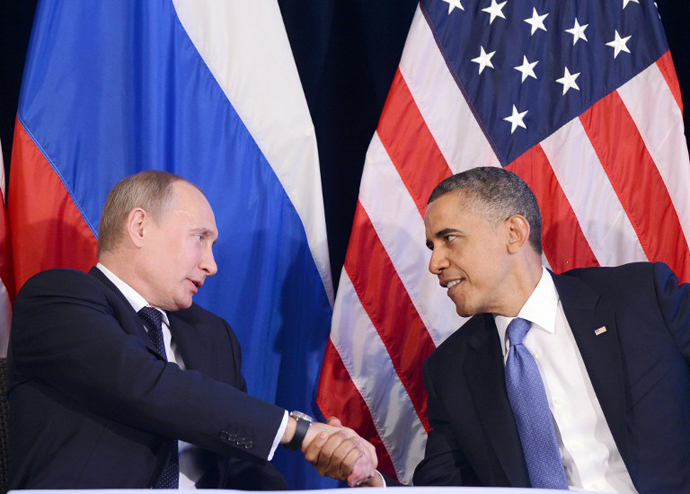
RT:Russian-US relations seemed to improve greatly during the 'reset' period. What went wrong? Why has it once again come to mutual distrust?
SC: Obama did not want the Magnitsky Act, it was imposed on him by the American Congress, by the Congress that included his own political party, the Democratic party. The situation about President Putin is I think more nuanced, and I’m less certain about it, but in the run-up for example to the ban by the Duma, the Russian parliament, of American adoptions of Russian orphans, there was no evidence until that thing got political life in the Duma that Putin favored it.
Now it’s true he didn’t oppose it, he didn’t veto it, but remember that long before the Magnitsky Act, there were deep misgivings in Russia about American adoptions. There were too many abused Russian kids in America, too many deaths of Russian orphans adopted by Americans, but there was something else. Remember the Kremlin signed with the White House an agreement, I think it was in November 2012, that Russia would be given inspection rights, visitation rights to the homes of the adopted Russian kids in the United States. They were not given that right.
And Obama’s answer was, 'I’m very sorry I can’t enforce the treaty I signed with you, because orphans are matter of states’ rights, the fifty American States, not the federal government regulating this.' Well, the Kremlin was very angry. Why didn’t Obama tell them that before they signed this treaty? Which might also ask, Since Russia has a lot of international lawyers, why they didn’t study American laws? They would have known.
But Russia’s anger about what seemed to be the Obama administration's unwillingness to honor the treaty giving Russian officials the right to check that Russian orphans adopted are OK, that fed that Duma bill. And that was independent of the Magnitsky Act. The Magnitsky Act was a pretext to adopt that bill. But you see how an event like the Magnitsky act will make other things worse. Things that are already half there, that might not get worse, now they will get worse.
The statements, views and opinions expressed in this column are solely those of the author and do not necessarily represent those of RT.
The statements, views and opinions expressed in this column are solely those of the author and do not necessarily represent those of RT.



